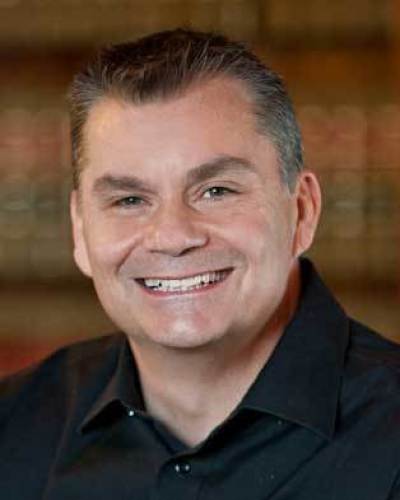How really free are you where God is concerned?
A recent article I wrote for Christian Post on the doctrine of limited atonement generated exactly the type of responses I knew it would, with some calling me brave and others the devil himself. I actually have a soft spot for those critical of the teaching because I used to be one of them.

That is, until I came to study more deeply another tenet of the Christian faith, which most all believers hold to in some form or fashion – the doctrine of depravity. In short, this precept says all human beings are born sinners, natural enemies of God (Rom. 5:12-19), and incapable of coming to God on their own.
It’s my opinion that, once the domino of total depravity falls, all the other supposed hard-to-accept teachings of reformed theology (including limited atonement) become easy to accept. Let me explain.
The crux of the issue
In his debate with his academic rival Erasmus on the subject of reformed teachings, Martin Luther commended him on choosing the doctrine of depravity as his starting point: “I praise and commend you highly for this also, that unlike all the rest you alone have attacked the real issue, the essence of the matter in dispute.”
For this reason, Luther called his book The Bondage of the Will his most important work. He sums up his position as: “Free will without God’s grace is not free at all, but is the permanent prisoner and bondslave of evil, since it cannot turn itself to good.”
It wasn’t just the reformers who thought this; John Wesley (sounding much like Jonathan Edwards[1]) admitted: “Such is the freedom of the will; free only to evil; free to drink iniquity like water; to wander farther and farther from the living God, and do more despite the Spirit of grace!”
The reason both reformed and non-reformed believers adhere to the doctrine of depravity is that it flows freely through Scripture. We are told that (all emphasis mine):
“There is none who understands, there is none who seeks for God. All have turned aside” (Rom. 3:10–12); “the mind set on the flesh is hostile toward God; for it does not subject itself to the law of God, for it is not even able to do so” (Rom. 8:6–7); “For the word of the cross is foolishness to those who are perishing” (1 Cor. 1:18); and the clincher: “But a natural man does not accept the things of the Spirit of God, for they are foolishness to him; and he cannot understand them, because they are spiritually appraised” (1 Cor. 2:14).
So, if this doctrine enjoys near universal acceptance, why the debate?
How are spiritually blind eyes opened?
With few exceptions, theologians don’t disagree on whether we come into life alienated in our soul towards God, but more so, how limited is our spiritual free will and how does that limitation pertain to salvation? There are a number of views to consider.
Pelagius, was a British monk who emerged as a spiritual leader of both clergy and laity in Rome around A.D. 380. His stance was there is no connection between Adam’s sin and the state all people are born into; i.e., people are born innocent without sin and have the free will to choose good or evil.
Catholicism, accepting the teaching of depravity, agreed at the Council of Trent that the sacrament of baptism removes the guilt of Adam from every child and leaves them in a state of innocence with a free will that may or may not choose to sin. In addition, the Catholic church responded to the reformer’s beliefs with the teaching of Jesuit Luis de Molina, who spearheaded the concept of Molinism and God’s middle knowledge that speaks to human’s salvific free will.
Jacob Arminius resisted the reformers and argued that the relationship between God and humanity is one of cooperative assistance where the Holy Spirit is not overcoming a hostile will to make it compliant so much as it is assisting a person’s natural faculties to respond to God. The Holy Spirit only succeeds so far as a person concurs; people can prevent the grace of God by resisting it.
Wesley adopted a position that straddled reformed and Arminian teaching. He asserted that because of Christ’s work on the cross, a grace termed preventing or “prevenient grace” comes upon all people making us capable of freely cooperating with God where our salvation is concerned.
Finally, the reformed position is well summed up by Dr. James White: “Reformed Christians believe that people believe and choose. It is the order of events that is in dispute. Every Christian has chosen Christ, believed in Christ, embraced Christ, and even more, continues to do so. The question is not ‘must a person believe,’ but can a person believe while a slave to sin? Further, whose decision comes first: the decision of God to free the enslaved, dead sinner and give them the ability to believe, or the free-choice decision of the sinner that then makes him or her one of the elect?” (emphasis in the original).[2]
So which is it?
So, how do we determine which, if any, position is correct? Let me crack my knuckles and quickly – given the space we have with which to work – go through the options.
At the council of Carthage in A.D. 412, Pelagius’ views were officially condemned and, based on Scripture, I believe rightfully so.
With respect to the Catholic teaching, there is no explicit biblical support for baptism freeing a person from their spiritual blindness. Regarding Molinism, while interesting philosophy, it also has no meaningful, overt coverage in Scripture that supports its opinion.
The Arminian stance of humans born in sin not being innately adversarial to God appears to contradict numerous biblical passages, some of which have already been cited. Perhaps the clearest on our natural state is Eph. 2:3, which says: “Among them we too all formerly lived in the lusts of our flesh, indulging the desires of the flesh and of the mind, and were by nature children of wrath, even as the rest” (my emphasis).
The Wesleyan position of prevenient grace is interesting in that, Wesley believed it was irresistible much like the reformed doctrine of irresistible grace. The key difference is that once a person was spiritually re-enlightened by the former, they could then re-resist God’s offer of salvation. The most cited verses in support of prevenient grace are John 1:9 and John 12:32.
In my opinion there are numerous problems in using these two verses as convincing proof of prevenient grace, all of which are covered by Dr. Thomas Schreiner here. And, as Robert Chiles says, once prevenient grace falls, “the Calvinist logic is irrefutable.” Wesley admitted as much too.
That leaves us with the reformed position of everyone born being numb to God and staying that way unless God decides otherwise. This fits with numerous biblical passages such as (all emphasis mine):
“No one can come to Me unless it has been granted him from the Father” (John 6:65); “To you it has been granted to know the mysteries of the kingdom of heaven, but to them it has not been granted”; (Matt. 13:11); “You do not believe because you are not of My sheep” (John 10:26); “For this reason they could not believe, for Isaiah said again, “He has blinded their eyes and He hardened their heart, so that they would not see with their eyes and perceive with their heart, and be converted and I heal them” (John 12:39–40); “Why do you not understand what I am saying? It is because you cannot hear My word” (John 8:43).
“TheLord opened her [Lydia’s] heart to respond to the things spoken by Paul” (Acts 16:14); “For I am confident of this very thing, that He who began a good work in you will perfect it until the day of Christ Jesus” (Phil. 1:6); “Moreover, I will give you a new heart and put a new spirit within you; and I will remove the heart of stone from your flesh and give you a heart of flesh.” (Ezek. 36:26); “(as it is written, “A father of many nations have I made you”) in the presence of Him whom he believed, even God, who gives life to the dead and calls into being that which does not exist” (Rom. 4:17); “But as many as received Him, to them He gave the right to become children of God, even to those who believe in His name, who were born, not of blood nor of the will of the flesh nor of the will of man, but of God” (John 1:12–13); “For just as the Father raises the dead and gives them life, even so the Son also gives life to whom He wishes” (John 5:21); “It is the Spirit who gives life; the flesh profits nothing; the words that I have spoken to you are spirit and are life” (John 6:63); “When you were dead in your transgressions and the uncircumcision of your flesh, He made you alive together with Him, having forgiven us all our transgressions” (Col. 2:13); “For to you it has been granted for Christ’s sake, not only to believe in Him, but also to suffer for His sake” (Phil. 1:29).
It’s not fair
If you’ve read up to this point, congratulations – this can be some tough sledding. Let me now quickly wrap up.
Whether you agree with the doctrine of depravity or not, you can see that if it is true, then the rest of reformed teachings fall into place with little concern. For me, this was the primary reason I came to accept reformed theology.
The most common objections to the reformed view of depravity include that it wrongly depicts God as unloving, insouciant, and unfair.
As to being unloving, if you believe that God must offer mercy equally to everyone, then you’re saying He is not ‘good’ unless He extends grace to all. Realize by doing this, you’ve just made his mercy obligatory via your own form of human justice.
As to being unfair, of course it’s not fair. What’s fair is for God to relegate everyone to an eternity without Him. It’s like the problem of evil: the question is not so much why bad things happen to good people but more why good things happen to bad people, which we all are.
There is no greater example of a good thing happening to a bad person than God, through His grace alone, regenerating that person and liberating them from their slavery to sin so they then freely choose Christ as their savior. The person (like everyone else) in no way deserves it, but God graciously calls them back from spiritual death much like Jesus did Lazarus from physical death.
“True liberty”, wrote Arthur Pink, “is not the power to live as we please, but to live as we ought.” On our own, we lack that true liberty and thus cannot turn to God. But once the Spirit, who “blows where He wishes” (John 3:8) comes upon us, then we are “born of the Spirit” and are saved, as the old saying goes, even before we know it.
[1] Edwards wrote what is perhaps the most quintessential work on the subject, The Freedom of the Will.
[2] James White, The Potter's Freedom (Amityville, NY: Calvary Press, 2000), Pg. 184.
Robin Schumacher is an accomplished software executive and Christian apologist who has written many articles, authored and contributed to several Christian books, appeared on nationally syndicated radio programs, and presented at apologetic events. He holds a BS in Business, Master's in Christian apologetics and a Ph.D. in New Testament. His latest book is, A Confident Faith: Winning people to Christ with the apologetics of the Apostle Paul.



























